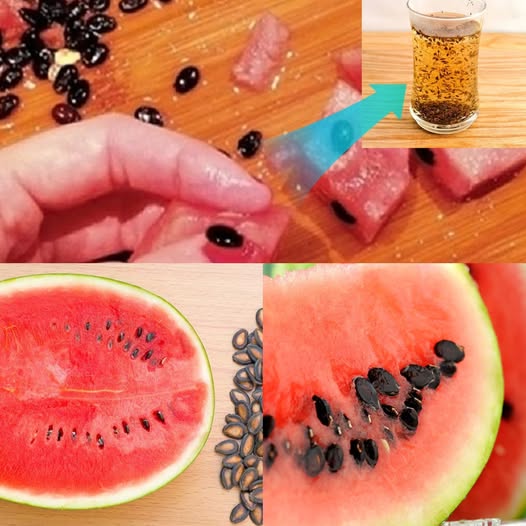
Watermelon seeds are often discarded or considered a nuisance when enjoying the sweet, refreshing fruit. However, these tiny seeds are packed with nutrients and offer several health benefits that might make you think twice before spitting them out.
Nutritional Powerhouses
- Rich in Protein: Watermelon seeds are a good source of protein, which is essential for muscle repair, skin health, and overall body maintenance.
- Magnesium: One of the key benefits of watermelon seeds is their magnesium content. Magnesium is vital for many bodily functions, including muscle and nerve function, blood sugar control, and blood pressure regulation.
- Iron: These seeds are a great source of iron, an essential mineral that helps with transporting oxygen throughout the body. Iron deficiency can lead to fatigue, hair loss, and anemia.
- Zinc: Watermelon seeds contain zinc, which is important for immunity, skin health, and cell growth.
- Heart Healthy Fats: The seeds are rich in both monounsaturated and polyunsaturated fatty acids. These fats are beneficial for the heart and help to lower levels of bad LDL cholesterol.
How to Consume Watermelon Seeds

To gain the benefits, watermelon seeds need to be prepared properly, as they are not digestible in their raw form when whole.
- Roasting: Roasting watermelon seeds is a popular way to prepare them. Simply rinse the seeds, pat them dry, and spread them on a baking sheet. Drizzle with a little olive oil and a pinch of salt, and roast in an oven at 325°F (163°C) for 15-20 minutes or until they are crispy and golden.
- Sprouting: Sprouting watermelon seeds is another way to make them digestible. Soak the seeds in water for a few days, allowing them to germinate. Once sprouted, dry them in the sun or a dehydrator before consuming. Sprouted seeds are known for being easier to digest and for having enhanced nutritional value.
- Grinding: You can also grind watermelon seeds into a powder and add them to smoothies, yogurt, and oatmeal for a nutritional boost.
Incorporating Watermelon Seeds into Your Diet

- As a Snack: Roasted watermelon seeds make a nutritious and satisfying snack. Season them with a little salt or other spices to enhance their flavor.
- In Salads: Sprinkle roasted or sprouted watermelon seeds over your salad for extra texture and nutrients.
- In Baked Goods: Ground watermelon seeds can be added to bread, cookies, or muffins for added protein and minerals.
Watermelon seeds are an excellent example of a waste-not resource that offers extensive health benefits. Next time you enjoy a watermelon, think twice before discarding those seeds, as they could provide you with a substantial nutritional boost.


















